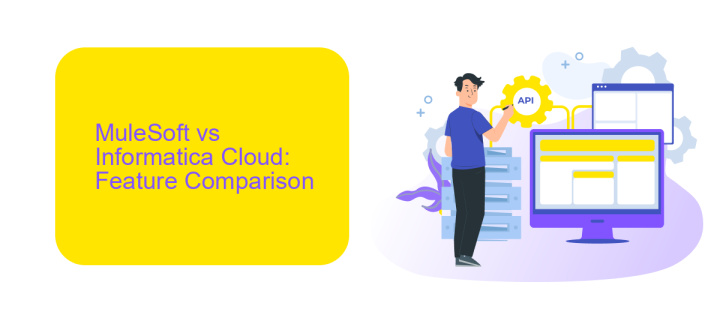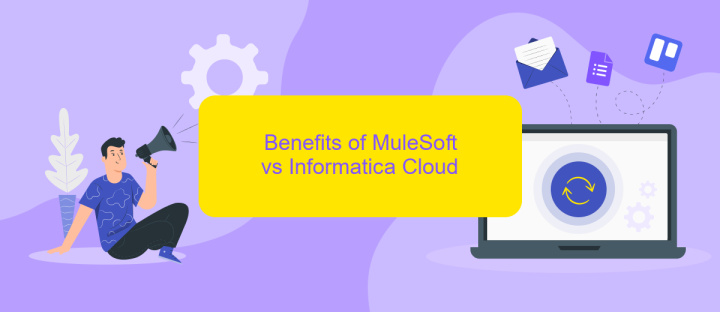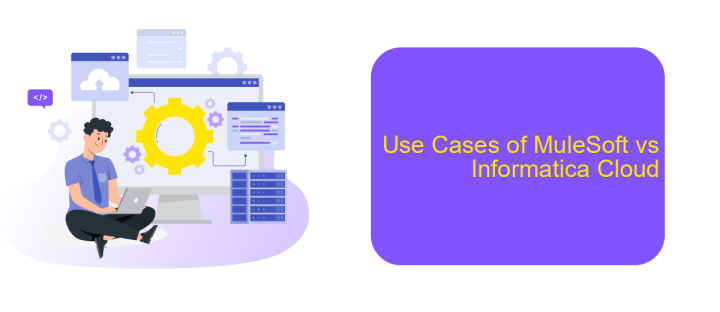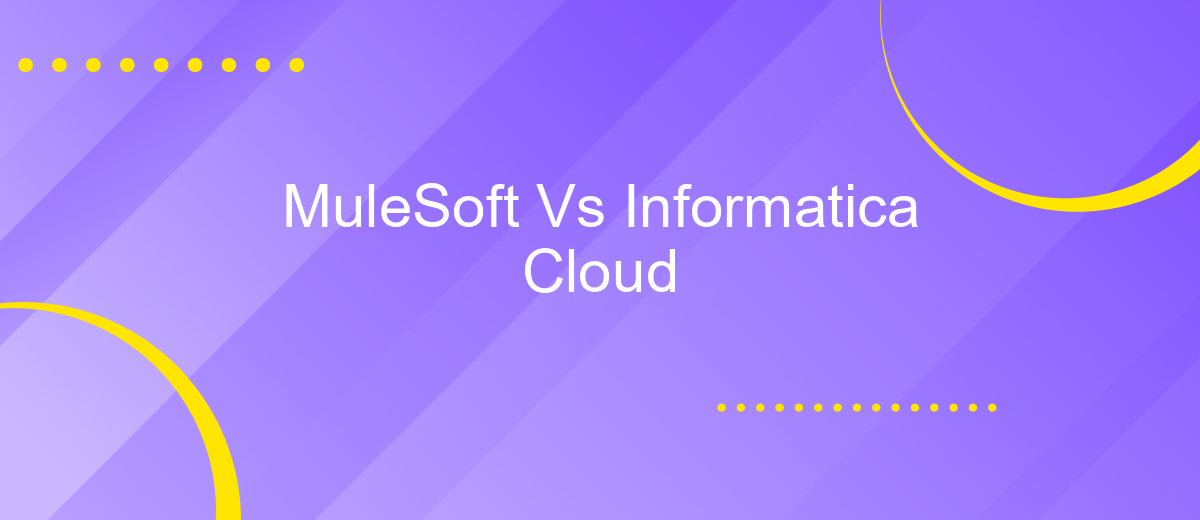MuleSoft Vs Informatica Cloud
In the evolving landscape of cloud integration, businesses are increasingly turning to robust platforms to streamline their operations. MuleSoft and Informatica Cloud are two leading contenders in this space, each offering unique features and capabilities. This article delves into a comparative analysis of MuleSoft and Informatica Cloud, helping you determine which solution best meets your organization's integration needs.
Introduction
In today's rapidly evolving digital landscape, integration platforms play a crucial role in ensuring seamless data flow between various systems. Two of the most prominent players in this space are MuleSoft and Informatica Cloud. Both platforms offer robust solutions for connecting disparate systems, automating workflows, and enhancing overall business efficiency.
- MuleSoft: Known for its Anypoint Platform, MuleSoft provides a comprehensive suite of tools for API management, data integration, and connectivity.
- Informatica Cloud: Offers a wide range of cloud-based data integration solutions, focusing on data quality, governance, and big data management.
While both MuleSoft and Informatica Cloud have their unique strengths, choosing the right platform depends on your specific business needs and technical requirements. Additionally, services like ApiX-Drive can further streamline the integration process by offering user-friendly tools for automating data transfers and synchronizing various applications. Understanding the capabilities and limitations of each platform is essential for making an informed decision.
MuleSoft vs Informatica Cloud: Feature Comparison

MuleSoft and Informatica Cloud are both powerful integration platforms, but they offer distinct features that cater to different business needs. MuleSoft excels in providing a robust API-led connectivity approach, which allows developers to design, build, and manage APIs with ease. Its Anypoint Platform offers a unified solution for API management, design, and analytics, making it a preferred choice for enterprises seeking comprehensive API lifecycle management. Additionally, MuleSoft's strong community support and extensive library of pre-built connectors simplify the integration process.
Informatica Cloud, on the other hand, is renowned for its data integration capabilities. It offers a wide range of data management solutions, including data quality, data governance, and master data management. Informatica Cloud's user-friendly interface and advanced data transformation tools make it an excellent choice for businesses focusing on data-centric integrations. For companies looking to streamline their integration processes further, services like ApiX-Drive can be invaluable. ApiX-Drive provides easy-to-use tools to automate data flow between various applications, enhancing the efficiency of both MuleSoft and Informatica Cloud integrations.
Benefits of MuleSoft vs Informatica Cloud

MuleSoft and Informatica Cloud are both powerful integration platforms, but they offer distinct benefits that cater to different business needs. MuleSoft is renowned for its robust API management and extensive connectivity options, making it ideal for enterprises seeking comprehensive integration solutions. On the other hand, Informatica Cloud excels in data management and governance, providing advanced data integration and quality tools.
- API Management: MuleSoft provides exceptional API management capabilities, allowing businesses to design, deploy, and manage APIs with ease. This is particularly beneficial for organizations with complex API ecosystems.
- Data Integration: Informatica Cloud offers superior data integration features, ensuring high data quality and governance. It is well-suited for businesses that prioritize data accuracy and compliance.
- Ease of Use: Both platforms offer user-friendly interfaces, but Informatica Cloud's intuitive design simplifies data integration tasks, making it accessible even to non-technical users.
- Connectivity: MuleSoft boasts a vast array of connectors, enabling seamless integration with various applications and systems, including ApiX-Drive, which further streamlines the integration process.
Ultimately, the choice between MuleSoft and Informatica Cloud depends on your organization's specific requirements. MuleSoft is ideal for API-centric integrations and extensive connectivity, while Informatica Cloud excels in data management and governance. By understanding the unique benefits of each platform, businesses can make informed decisions to optimize their integration strategies.
Use Cases of MuleSoft vs Informatica Cloud

MuleSoft and Informatica Cloud are powerful tools for integration, each with unique use cases. MuleSoft is often chosen for its robust API management and ability to connect a wide range of applications, data, and devices. It excels in complex integration scenarios, especially when real-time data processing and API-led connectivity are crucial. On the other hand, Informatica Cloud is preferred for its strong data integration capabilities, particularly in ETL (Extract, Transform, Load) processes and data migration projects.
Both platforms have their strengths, and the choice between them often depends on specific business needs and technical requirements. For instance, MuleSoft is ideal for organizations looking to create a network of applications through APIs, while Informatica Cloud is better suited for data-centric tasks.
- MuleSoft: API management, real-time data processing, complex integrations
- Informatica Cloud: ETL processes, data migration, data quality management
Additionally, services like ApiX-Drive can complement these platforms by providing pre-built connectors and automation tools, simplifying the integration process. This can be particularly beneficial for businesses looking to streamline their workflows without extensive coding or technical expertise.
Conclusion
In conclusion, both MuleSoft and Informatica Cloud offer robust solutions for integration needs, each with its unique strengths and capabilities. MuleSoft excels in providing a comprehensive API-led connectivity approach, which is ideal for enterprises looking to build seamless and scalable integrations. On the other hand, Informatica Cloud stands out with its strong data management and governance features, making it a preferred choice for organizations with complex data integration requirements.
When choosing between these two platforms, it is essential to consider your specific business needs, existing infrastructure, and long-term integration goals. Additionally, tools like ApiX-Drive can further simplify the integration process by offering user-friendly interfaces and automated workflows, thus enhancing the overall efficiency of your integration strategy. Ultimately, the right choice will depend on how well the platform aligns with your organizational objectives and technical requirements.
- Automate the work of an online store or landing
- Empower through integration
- Don't spend money on programmers and integrators
- Save time by automating routine tasks
FAQ
What are the key differences between MuleSoft and Informatica Cloud?
Which platform is more suitable for real-time data integration?
Can these platforms be used together?
Which platform offers better support for cloud applications?
What services can help with automating and setting up integrations for these platforms?
Time is the most valuable resource in today's business realities. By eliminating the routine from work processes, you will get more opportunities to implement the most daring plans and ideas. Choose – you can continue to waste time, money and nerves on inefficient solutions, or you can use ApiX-Drive, automating work processes and achieving results with minimal investment of money, effort and human resources.


